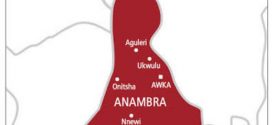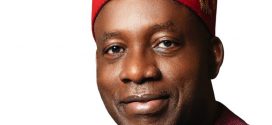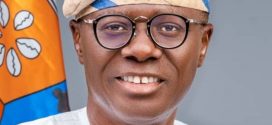Yesterday, February 6, a civic group issued a report to point out what it thought were instances of bogus allocation of public funds in the 2020 budget. We have studied the report and come to the conclusion that the claims were mostly uninformed and therefore unreflective of the true situation of things.
While civic groups are welcome to interrogate public issues, because government officials, no matter how meticulous, are humans who like every other person are susceptible to mistakes and omissions, it becomes a burden on the civic groups to ensure that their statements are thorough and factual. This is to ensure that they do not needlessly cast aspersions on officials of government in the name of scrutiny.
The truth is that the report failed the basic test of ‘ask if in doubt’. There is no documented record anywhere of the group asking questions on what it called ‘grey areas’. To build trust and avoid suspicion of motive, we urge that this basic standard be followed going forward in the interest of our democracy and peace.
Now, contrary to its needless innuendoes, there was nothing obscure or extravagant in the budget. The group talked about N1.2bn budget for purchase of vehicles for political office holders alone. This again points up the danger in one-sided narrative which could have been avoided had the group asked the House of Assembly or the executive about it. For the record, the total amount budgeted for purchase of motor vehicles (as captured on page 38 in code numbers 23010105/23010106) is N655,000,000. We really don’t know where the group got its own figures!
Firstly, vehicles purchased for political office holders are not gifts. Such vehicles are meant to ease their work. What is more, any public office holders who get official vehicles will pay for same as dictated by the monetisation policy. In other words, the money will come back to the treasury. Secondly, the government is making heavy investments on security this year. To that extent, government will purchase (patrol) vehicles to strengthen security and protect lives and properties across the state. This is covered in the same amount.
Thirdly, the money covers purchase of vehicles for principal officers and members of the Kwara State House of Assembly. Like members of the state executive council, the lawmakers have been using their personal vehicles to perform official duties. Also, whatever amount used to buy vehicles for the lawmakers will be deducted from their salary in line with the monetisation policy. The government recently purchased 27 vehicles for the civil service. This, of course, is like a drop in the ocean for a civil service that was until this administration starved of decent working conditions. So, part of the money will go into purchasing more vehicles for the civil service. Many of the vehicles in the Government House are in bad shape and are to be replaced in the fiscal year.
The N1.6bn item line in the House of Assembly budget is meant to pay the salaries and allowances for the House of Assembly staff, expenses on committee assignments and oversight functions that include public hearings and daily running of the House affairs.
While the administration understands the need to be modest, it is convinced that budgeting for 620,689 litres of petrol and 45,454 litres of diesel (both adding up to N190m) to power government vehicles, plants and generators for a whole year is within the bound of decency anywhere in this country.
The group also questioned the allocation of N360m for audit. In what seems like an attempt to incite the public against the government, it went ahead to say that the money for auditing is far higher than what was allocated to primary health care. The insinuation is noted and frowned at because it was made without any basis. Given the unabated discoveries of mind boggling financial recklessness of the past, it is in the public interest to do comprehensive auditing of government books covering at least the last eight years.
This audit covers all the MDAs and parastatals. The comparison of the budgeted sum with the allocation for primary healthcare was baseless because hundreds of millions of naira are budgeted for primary healthcare. The bulk of such allocations is the counterpart funding for polio, AIDS, malaria, maternal healthcare, nutrition, which is warehoused in the Ministry of Finance and Planning. It is also submitted that millions of naira are budgeted for repairs of primary healthcare centres as reflected in the budget of the Ministry of Health.
The group also questioned the allocation of N200m to Harmony Holdings. Again, merely asking questions from the House of Assembly or management of the firm would have cleared the air. Harmony Holdings was practically run aground. It was ripped to the bone so much that it is unable to pay salary on its own! The money allocated to it in the budget was therefore to recapitalise the company to achieve its set objectives. Perhaps it is right to mention here that AMCON has sued Harmony Holdings on account of huge debts, currently over N1bn, into which the past management has plunged it. The debt particularly arose from the many strange transactions at Shonga Farm, which had been sold out by the last regimes, even as the people of Kwara State continue to shoulder its debt as a result of ISPO (Irrevocable Standing Payment Order) it was committed to.
Among other things which basically arose as a result of not asking basic questions, the group talked about the Ecological and Stabilisation Fund. It was in fact one of the funniest things seen in the report because budget is not a static document. It is an estimate which is subject to developments and reviews from time to time. Government reasonably expects to fund budget from various revenue sources, which are not cast in iron. For instance, the budget had been predicated on $57 per barrel of crude oil. Today, the price of crude oil has fallen to $54! So, there is nothing strange to make reasonable estimate as the government did with the Ecological Fund.
Finally, the N250m ‘honorarium’ in the budget is strictly meant to offset the severance package of cabinet members and statutory commissioners who served the state between 2011 and 2019. It is what the law (see Revenue Mobilisation and Fiscal Allocation Commission provisions) allows them to take for serving the public. This administration, led by a statesman, is concerned only about governance and giving to anyone whatever that is reasonably due to them. The amount budgeted was actually higher than the N250m but the House of Assembly in its wisdom felt that is all we could afford in the 2020 fiscal year.
Once again, we sincerely welcome constant engagements with civic groups and indeed all members of the public. However, we appeal for caution and thoroughness as misrepresentations and innuendoes as the ones contained in the report could constitute needless and unintended attack on the integrity of public servants. The administration believes that while the budget is not perfect as with any human document, it is a great attempt to build a new Kwara where everyone, including generations yet unborn, gets their fair share of public resources. That budget, we insist, is one of reconstruction and reformation. It is one of hope and redemption!
 Hottestgistnaija.com
Hottestgistnaija.com




